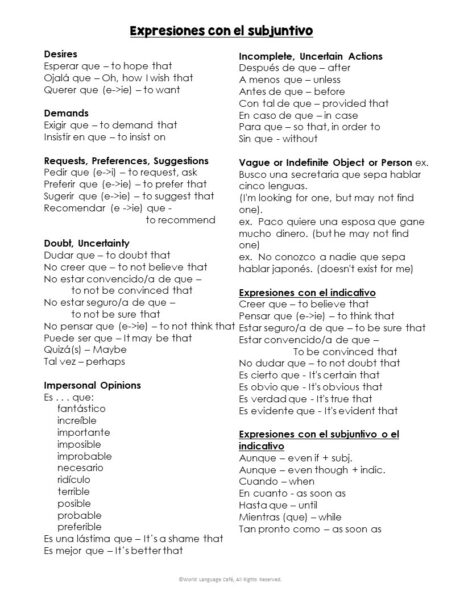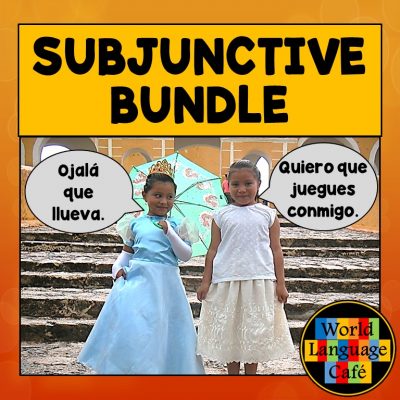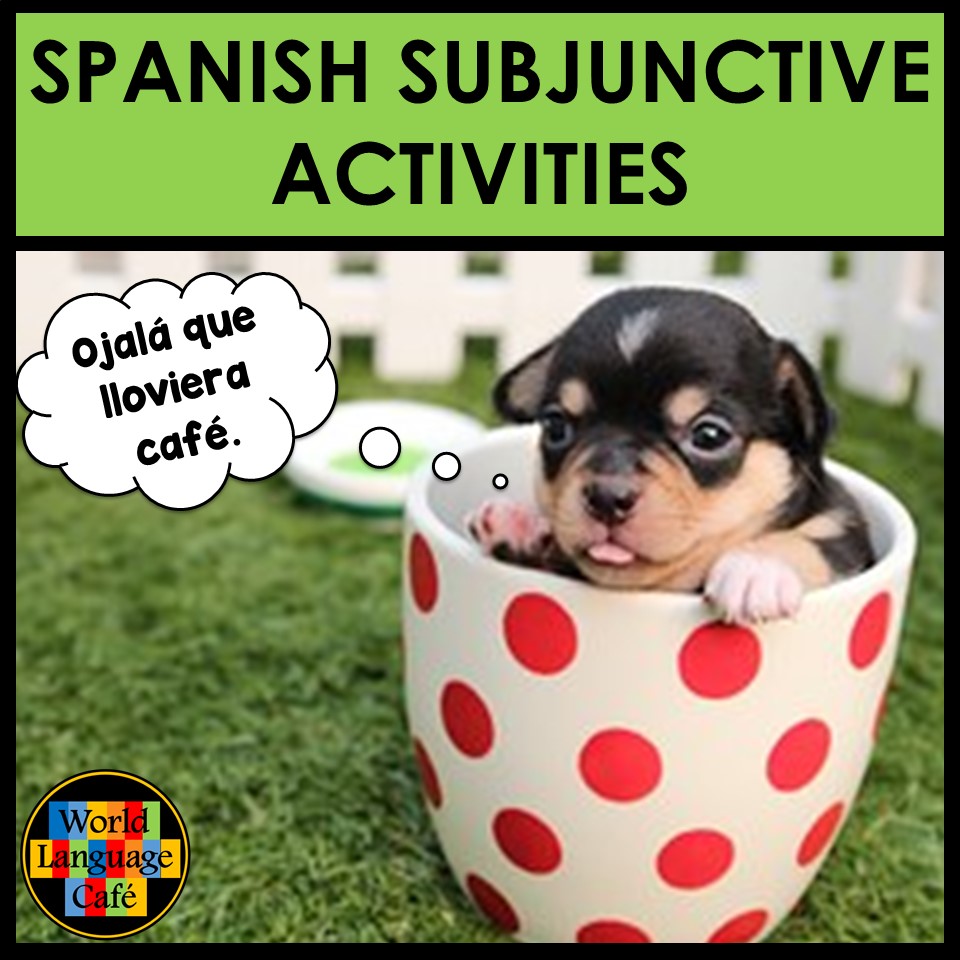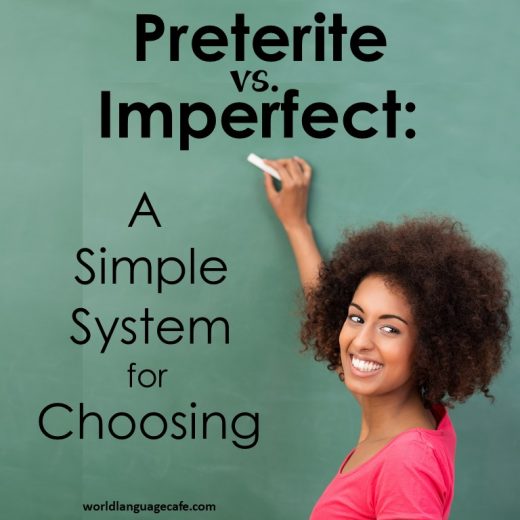If the subjunctive is your favorite topic to teach in Spanish class, raise your hand?
Hmm, no hands up . . . That’s because NO TEACHER EVER would raise their hand to say how much they love teaching the subjunctive. But listen, it doesn’t have to be like that.
When I taught this topic, I worked hard to find creative ways to spice up the subjunctive with fun games, songs, and internet activities and to create clear handouts to clarify formation and difficult grammar points.
So today, I’ll be sharing them with you so that you’ll be raising your hand right away. OK, maybe not, but these activities will hopefully make teaching subjunctive a little more fun and easier for you and your students.
1. Post Spanish subjunctive and indicative expressions around the room.
I created color-coded word wall signs to help students remember better.
Why This Works: Because students get bored and stare at everything in class. Might as well have them learning while they’re “en las nubes”. Subliminal mind control. Ha, ha, ha . . .



2. Have students speak using only the Spanish subjunctive.
They can say whatever they want, but they must use subjunctive expressions. See how long they can keep the conversation going. Start off by playing the song, “Ojalá que llueva cafe” for inspiration. Then pick a few expressions to use and practice a sample conversation as a class. Let students use their subjunctive expression handouts for this activity.
Grab this free Subjunctive vs Indicative Handout and Speaking Activity in My Free Resource Library!

Break them into small conversation groups and get started.
For example:
“Ojalá que llueva chocolate hoy porque me encanta el chocolate”.
“Ojalá que no llueva chocolate hoy porque tenemos un partido de fútbol y no quiero que chocolate caiga en mis ojos mientras juego”.
“Si lloviera chocolate, yo usaría un balde para recoger todo el chocolate y se lo daría a todos los niños que no tuvieran chocolate”.
The sillier the conversation, the better. This activity works really well because it makes them think in Spanish and use the expressions many times. So much better than a boring worksheet!
3. Teach Students Subjunctive Formation Quickly and Easily
Half the problem with subjunctive is that teaching all the verb conjugations is exhausting. So I created 4 decks of Subjunctive Formation Boom Cards to teach students how to form all the verbs in the present subjunctive correctly.
All you do is send the links and your job is done. Digital, self-correcting flashcards with pop-up grammar lessons and color-coding ensure student success.
Use the free version of Boom and send your students a FastPin. If you haven’t used Boom before, it’s super easy – only takes 2 minutes to set up your free account.
4. Make Spanish Subjunctive Memes
Let your students select funny animal photos and then make them into memes using the subjunctive. Hang these around class and save them for future years for decorations. Put a new one on the door to your class each day.

4. Listen to Spanish subjunctive songs.
Here are a few of my favorites:
A Dios le pido
Azul
Exigimos
5. Start interesting discussions.
Give students a few helpful expressions to use and then have them talk about:
Something controversial happening at school or in the community
What can be done to improve classes, the school, the community, the environment
Current events
Dreams, aspirations for the world this year, in 5 years, in 10 years.
6. Get ready-made lesson plans to teach the subjunctive from start to finish!
Subjunctive Unit Lesson Plans
Subjunctive Formation Boom Cards
Subjunctive Trigger Words Wall Words
Subjunctive Quiz and Test

Hope you found these ideas for teaching the Spanish subjunctive helpful!
Happy Teaching!
~Sherry
And be sure to share your favorite ideas for teaching the subjunctive in the comments below.





4 Comments
Gina Covello
April 11, 2022 at 3:30 pmI agree with everything you say. I teach subjunctive in my Level 4 Conversational Class, but I let students know it exists beforehand, when it comes up in conversation, so they are not surprised. I break the unit into chunks like you did on the “Subjunctive Expressions” sheet. I use a song with each instance so students can see it exists and it’s used in everyday language. Also, the music helps alleviate the nausea that is often accompanied when learning the subjunctive!
Sherry Sebesta
June 8, 2022 at 9:51 amExactly, Gina! Songs and music are so helpful for language learning and definitely make the subjunctive more fun. 🙂
Cecelia Hicks
March 13, 2023 at 9:58 amI joined, used the password sent to my e-mail, but it says the information isn’t right. Would you check it out?
Sherry Sebesta
March 13, 2023 at 10:44 amBe sure you are going to the resource library and not just the website. Should be Worldlanguagecafe.com/Spanish/ or /French/